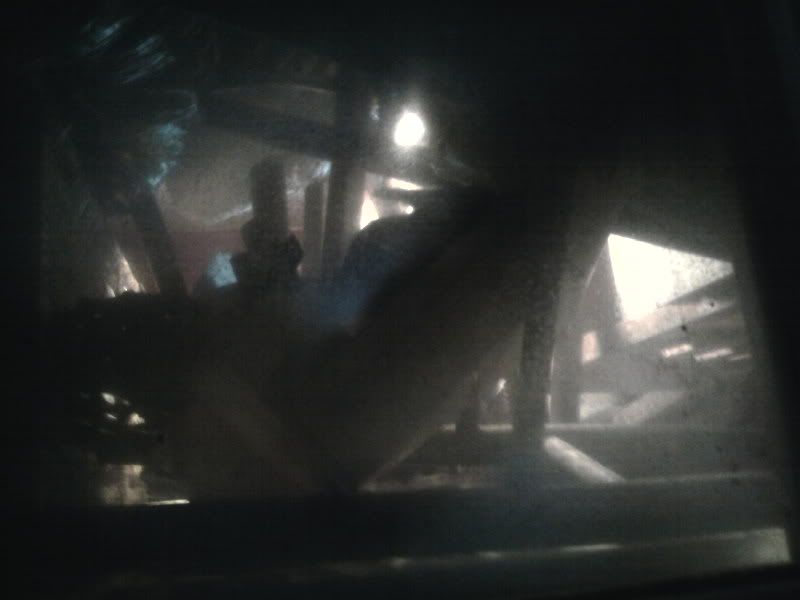
Bit of a 'work in blogress' the next few days as blogs nowadays are demanded to have been written even before yesterday to be considered part of the evolutionary chain. So what is the world asking of us pixelphiliacs? How's London Mayor Boris doing - smoozing in New York after falling foul of planning laws by erecting an illegal shed on his balcony? Most probably not the subject on everyone's lips. But always fun to see our Mayor Johnson up and about - easy to imagine him in a cameo on Broadway. But there's still signal failure on some underground tube line every second day to the point where it's so frequent you wonder whether the Tannoy announcers are just making up all this. Money is poured into engineering upgrades but the mind still boggles at the thought of those 2012 Olympic Games passengers. Often it takes a bus 15 min (at around 10am) to crawl the short distance between Oxford Circus and Piccadilly Circus. Let alone other shenanigans. Tortoise Circus. But one can't really blame Mayor Boris for all that.
Funding fear as Tube passenger numbers fall
UK museums should adopt US-style 'voluntary' fees, says Boris Johnson
Investment in Infrastructure on the Mayor's website
The new map of the London underground hasn't got the river Thames on it. How wrong is that?
Bailey's mobile phone portraits
(he was so inspired by mine that,,,)
Opening night for the Twitter opera
The world is chattering about President Obama commanding the world stage again with a fantastic new script while Colonel Gaddafi (addressing the UN) had housing problems not being allowed by authorities to stay in his tent (apparently on land owned by Donald Trump). The President certainly got the attention even of those who escaped into virtual reality boffindom long ago. But what the boffs and bifflings really wanted to know this week was is the Surrogates movie (adapted from Robert Venditti's graphic comic novel set in 2054) any good? So much anticipated that a security guard patrolled the aisles at Wednesday's preview screening. Unheard of excitement for a London film preview. The morning skies in Sydney began reddening with outback dust the following day. If only we could convince the Martians to visit London and sort out the transport woes. Any chance Mayor Boris?
Go expecting Blade Runner or any number of great classic sci-fi movies then you'll be disappointed with Surrogates. But the story's premise is so strong it still keeps hold. Much maligned and feted Brit director Nicolas Roeg let it be known in a Front Row BBC Radio 4 interview that he'd love to film a graphic novel. And this film cries out for less linear direction. Venditti's inspiration came from people losing their spouses and jobs due to their addiction to the internet and online personas. In the original, Lionel Canter (James Cromwell) had designed surrogates (remotely brain controlled robots) specifically for the physically disabled, but like most inventions, ordinary citizens throughout the world began using them while lazing at home. This could have been a fantastic film but just isn't - and that's no fault of Bruce Willis. But it ain't all bad and what's interesting is that you don't feel it's spoilt the chances of a sequel based on Venditti's latest The Surrogates: Flesh and Bone. Venditti was immersed in literary classicists such as Hemingway rather than comics and began by stacking boxes for the company that a few years later published his work. Here's a normal guy with big, sweeping, interesting ideas that really start eating into our marrow of contemporary society.
Good audio interview on Comic Book Outsiders (about 18 min in)
The teen bloggers who took over the internet
All that red dust over Sydney suddenly makes sense of the manna from heaven. In the 3D animated Cloudy with a Chance of Meatballs every food imaginable falls from the sky when kid inventor Flint Lockwood's machine designed to turn water into food goes haywire. Originating from a 1978 children's book, this film is not only enormous fun but will get kids thinking about science, climate change, genetic mutation, bullying and whether bigger really is better. Great designed 3D glasses as well so cool you want to wear them home.
There's more than a scary hint of Robert Venditti's idea that everything can be controlled in The Soloist. Initially, the broad cine brushstrokes used to paint this true story of ex Juilliard classical cellist mentally ill genius now homeless Los Angeles streetperson Nathaniel Ayers (Jamie Foxx) make one queasy. The feelgood story of how LA Times columnist Steve Lopez (Robert Downey Jr.) buys the guy a cello, finds him a room, introduces him to the LA Philharmonic and turns his life around. All beautifully and ingeniously photographed by Seamus McGarvey. But Brit director Joe Wright has cleverly made a film that while having commercial sweep also seems to question whether interfering in someone's life is ever the right move.
We are back in Wright's Pride and Prejudice territory here - how frequently people mis-perceive others through social convention. Nathaniel's story isn't an isolated one. In fact quite common. Only a few years ago a bass player who'd worked with all the jazz greats and dropped off the map was found in a Skid Row hotel. He'd not played a note in decades.
And Lopez in many ways is no hero; more veering towards the self-righteous career journalist as his colleagues are being made redundant. Downey gives Lopez complexity. He cares but pulls himself back to society's yellow line. Nathaniel began as just a possible story lead as other ideas got crossed off his shopping list. Does Nathaniel really need or want medication and accommodation questions the head of the homeless unit. Tom Hollander's LA Phil 'let us pray' cellist may seem characatured but he steps into Nathaniel's world from somewhere else completely. Beethoven string quartets are made to sound like Beethoven symphonies in Dario Marianelli's very clever film score. Does it matter the film seems provocatively to ask so long as it sounds good? Quite clearly for Nathaniel it does. He ended up playing Beethoven on the street because he wanted to hear the buzz of the world not the fleeting gossip of music school students and critics. He examines the dead fly in his new room fearing a similar fate. As the LA Phil's real life conductor Esa Pekka Salonen plays out the film with the extraordinary slow movement of Beethoven's 'Ode to Joy' 9th Symphony, Lopez's voice-over stresses loyalty and friendship "believing without question that it will carry you home". It sounds sentimental when quoted but so can the simple malady of a distant shore.
Los Angeles Philharmonic website
Daily Telegraph interview with Joe Wright
Steve Lopez on the film
FRIDAY 25 September:
Friendship and loyalty from another side of society in the magnificent digitally remastered print of The Godfather (1971). One forgets Mario Puzo's book and the subsequent film showed how resistant this patriarchal figure was to entering the world of narcotics or indeed a world of betrayal and bloodshed. Brando's Godfather is a warrior who in defending his people, made them happy and for that expected undying loyalty in battle and in maintaining 'the family'. He was never meant to be representative of the Mafia network as a whole. Al Pacino as the son Michael initially tries to maintain a love for his father whilst keeping 'arms length' from the family business. One forgets that Nino Rota's famous music score 'theme' doesn't arrive until half way through the film when Michael must temporarily exile himself to his native Sicily. The ever painful ties that bind. One of those ever more rare films that are both commercial and a work of art.
Very useful Twitter site for the film's UK distributor Park Circus.
The other side of the Mafia in Gomorrah.
BBC Radio 4's The Film Programme has silent film score pianist/composer Neil Brand on The Godfather score plus other items: Sally Potter on her new multi-media platform film Rage and Joe Wright on The Soloist.
Legendary though not so widely known American photographer Steve Schapiro was stills photographer for the film and were shown at Hamiltons gallery in London earlier this year (photo of opening here). (my initial post) His photos for American Radioworks, more, and more.
Woody Allen dressed as a sperm in Everything You Wanted to Know About Sex But Were Afraid to Ask.
Vanity Fair, Taxi Driver film stills
The Making of The Godfather
Chevolution is a fascinating and revelatory doco on that single iconic photographic image of Ernesto 'Che' Guevara. Taken by Alberto 'Korda' Díaz Gutiérrez(originally a fashion photographer) at a memorial service in Havana for victims of an explosion in 1960, it was only one of many photos taken - most showing Guevara brandishing explosives rather than a dove of peace. The photo without which, many believe, the Cuban revolution would never have happened. In fact Korda's previously best known image had been of a young girl clutching as her doll a piece of wood, La Ninja. What makes this doco so interesting for an audience in 2009 and the age of image proliferation, is not so much the politics but more the larger question of how a photo is used and not what it is: the moment separated from history and freed from the moment. BBC Four showed some months ago, as part of their photo season, a doco about the famous Dorothea Lange 30s Depression America 1936 Migrant Mother nestling her two kids. In fact the photo had been cropped from one showing her with a family of seven. Not as tugging at the heartstrings. According to one interviewee in Chevolution: "if we don't have heroes we construct them...Che became the face of Icarus, the boy with wax wings who dared fly close to the sun." "The very thing he [Che] tried to bring down [capitalism] is perpetuating his image."
Moctezuma: Aztec Ruler (1502-1520) at the British Museum uses parchment codices as a vital source "in inviting an interrogation of how history is constructed," according to the show's curator - an exhibition that doesn't so much dazzle as intrigue. "We're not rehabilitating such a tyrant," stresses the curator but investigating "the practice of leadership and comparing this to other traditions" as part of their great leaders series (Hadrian: Empire and Conflict was in here before). "Here no one fears to die in war" is a slide projected poem from the city of Tenochtitlan. Wind, birds and other sound effects eerily waft through the exhibition and upwards to the great dome of the former British Library reading room (Marx ironically wrote his Das Kapital here). Bizarrely, it wasn't until recently that scholars began using the codices to reexamine the divergent interpretations of Moctezuma's death at the hands of the Spanish.
The Instituto Nacional de Antropología e Historia (INAH, National Institute of Anthropology and History)
Aztec art website
Creation is the intimate domestic story of Charles Darwin based on the book Annie’s Box by Darwin’s great great grandson Randal Keynes. Not the usual bio-pic. Did the filmmakers succeed in being more than that though? Almost. Images and premonitions of death (including his own child), water, rebirth, are the bedrock of this beautifully lensed film (Jess Hall). As committed as Paul Bettany is to the character of Darwin one still can't get away from an actor acting the man who wrote the controversial On the Origin of Species. And that's no fault of Bettany's. Perhaps if the film went further down the road it's taken into the mind of Darwin and his wife this mightn't seem such a problem. Nonetheless, there's much to admire in Jon Amiel's film.
The Linnean Society of London and their Darwin celebrations.





